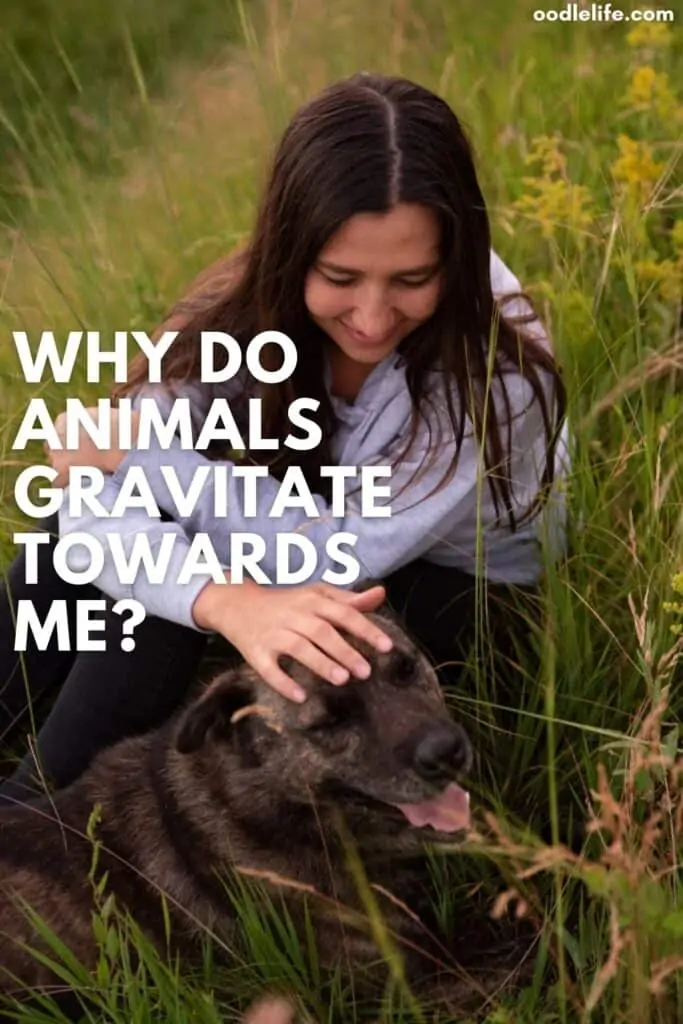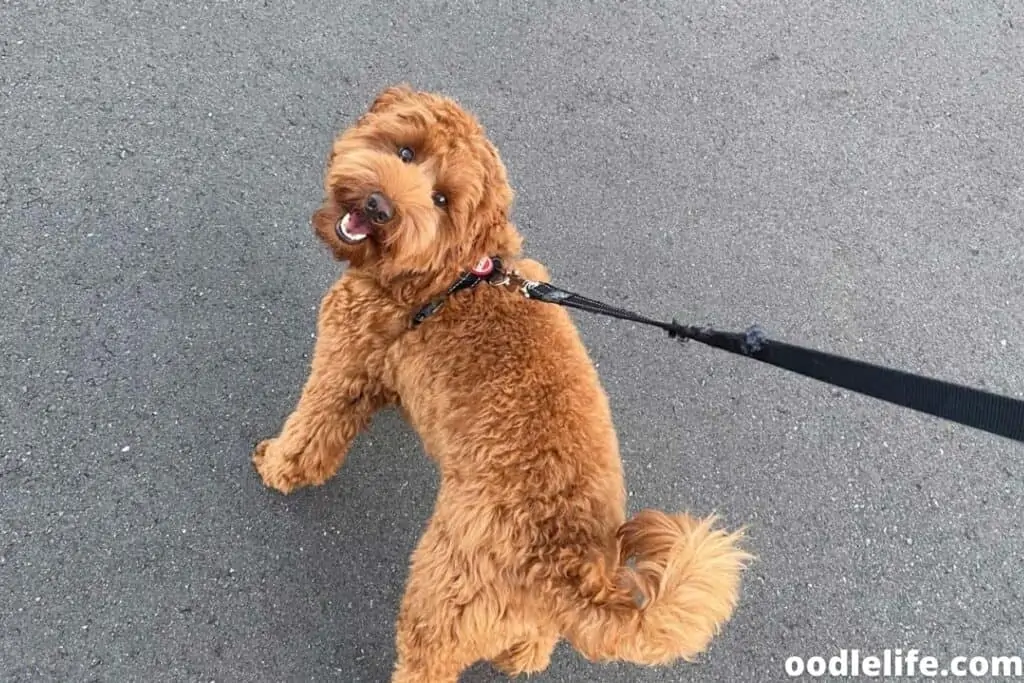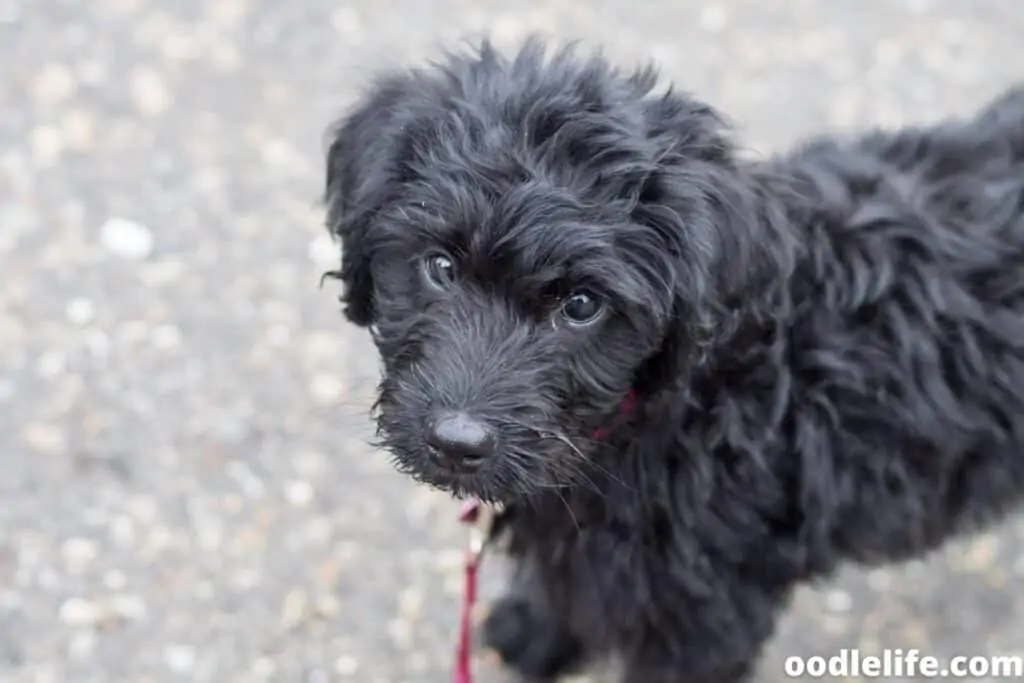Why Do Animals Gravitate To Me?
Some people are animal magnets. Like a singing fairy tale princess, they attract furry friends wherever they go. Unfortunately, this sometimes applies even to those who don’t care for animals.
Have you ever wondered why?

Often, an avid dog-lover will receive utter indifference from the dogs he encounters, while those same dogs will fall all over themselves to reach his anti-pet friend. A person with a cat allergy may find that every feline on the block wants to wind around her legs or jump in her lap.
Then again, some pups make a beeline for dog-lovers, and many cats know exactly which humans to befriend.
Animals must have their reasons for the people they gravitate toward. It may be hard for humans to understand those reasons, though.
Below are some factors that experts believe may come into play when an animal decides which humans to approach and which to avoid.
The food factor

All animals, including humans, have one thing in common: they need food to survive. Every being is equipped with hunger and a drive to satiate it. So, if an animal thinks you might be a food source, it is much more likely to approach you.
Most mammals use sight as their primary food-searching mechanism. Eye color and shape is even often determined by an animal’s place in the food chain: predator or prey. With this in mind, it makes sense that animals will gravitate toward a person who looks like they have food or whose appearance reminds them of meal time.
Domesticated animals will often associate food with certain visuals: colors, shapes, even particular lighting. If your clothing or anything else about your appearance is reminiscent of dinner-time, they will be drawn to you.
There’s also the chance they can smell your lunch on your hands, which brings us to the next possible factor.
It all makes scents

Most animals have an extremely powerful olfactory sense. For instance, dog noses are generally 40% stronger than human noses. That strong sense of smell may be leading animals toward or away from you.
Foremost, animals can smell food. If you have any edible items on your person, they probably know. Often, when a dog or cat approaches you, they are more interested in the granola bar in your pockets than they are in making friends with you.
Animals can also smell your pets on your clothes and skin. They may be checking out the competition by sniffing you up and down. Or they may be avoiding you because they know there’s a rottweiler lurking somewhere in your orbit.
There’s also your natural scent to consider. Some animals may be attracted to the way your skin and hair smell. Others may be repelled. It depends entirely on the chemical makeup of your particular scent.
Peace out
Another factor that may attract or repel animals is your demeanor. Just like humans, animals are drawn to certain types of people and repelled by others.
Often, cats and dogs seek out humans they perceive to be peaceful. A person who sits quietly without moving around a great deal may seem much more appealing than someone who is constantly in motion.
The volume of a human’s voice can also help determine whether animals will approach. A loud voice is alarming to many cats and dogs, just as it can be to humans. A soft, quiet voice seems less threatening and more welcoming to most animals.
This may be a reason many pets are drawn to the elderly and avoid children. Since older people tend to sit still more often and make little noise, animals find them appealing. Children, on the other hand, are much noisier and in constant motion, so many pets find them intimidating.
Hey, don’t I know you?

Familiarity also often plays a role in how approachable an animal finds a particular human. When an animal regularly encounters the same human in the same context, and the encounters are always pleasant and non-threatening, the animal is likely to associate that human with safety and routine.
In this way, animals aren’t that different from humans. We tend to be most comfortable around people we know or at least encounter regularly.
Everybody needs some lovin’
A further extension of the familiarity factor, if a pet repeatedly encounters a human who offers gentle affection, they are more likely to return to that human in future encounters.
Just like us, animals enjoy affection. Once they have established the non-threatening status of a human and that human has offered a little physical comfort, they will find that human more approachable in the future.
This can work in the opposite direction, as well. If they have had any unpleasant encounters with a human, they will avoid that person.
It doesn’t matter if the unpleasantness was unintentional on the human’s part; animals don’t make distinctions regarding motive. Petting too hard or in an uncomfortable manner may come from a place of affection, but an animal doesn’t know that.
Playing hard-to-get
Counter-intuitively, a human who displays indifference toward animals will often attract them the most. An animal-lover who offers an abundance of physical affection and high-pitched baby talk may inadvertently repel an animal.
Meanwhile, a person who basically ignores an animal may find that animal clamoring for attention.
This is especially true with cats. I’m a dog person; I like my friends’ cats fine and have nothing against them, but I don’t get excited when I see one. For the most part, I ignore them. Usually, once these cats realize I’m not going to make a fuss over them, they jump into my lap, curl up into a ball, and start purring.
We all want what we can’t have

Even more strangely, animals will often be drawn to people who actively dislike or fear them.
When humans are distressed by the presence of an animal, they often give off subtle signs that the animal picks up on. Sweaty palms, a tense set to the shoulders, and a shift in vocal tone are all quickly identified by most animals. In some cases, pets may even identify these signs as prey behavior and act accordingly.
Even if they don’t identify the uncomfortable human as prey, pets may find their reactions interesting and want to investigate. While this is less than pleasant for the human involved, it does make sense from the pet’s perspective.
Good vibes

Some schools of thought on the topic of what attracts animals believe that animals pick up on the unique energies a person emits.
This observation may not be as New Agey as it sounds. Many animals have keener senses than humans. They pick up on scents, sounds, and other stimuli that we often miss. It isn’t so far-fetched to assume that animals can sense whether a person is kind or cruel.
Animals have evolved with senses that alert them to danger, guide them toward food and shelter, and comfort, and allow them to create routines that keep them warm, fed, and alive. These instincts may play a critical role in choosing the humans they approach and the ones they avoid.
[Speaking of new age – check out our favorite list of Yoga dog names for some zen inspo!]
Conclusion
Various factors may come into play in explaining why animals find some people approachable and others less so. While we may never fully understand why certain people seem to attract animals everywhere we go, we can be reasonably certain that the factors listed above play at least some role.